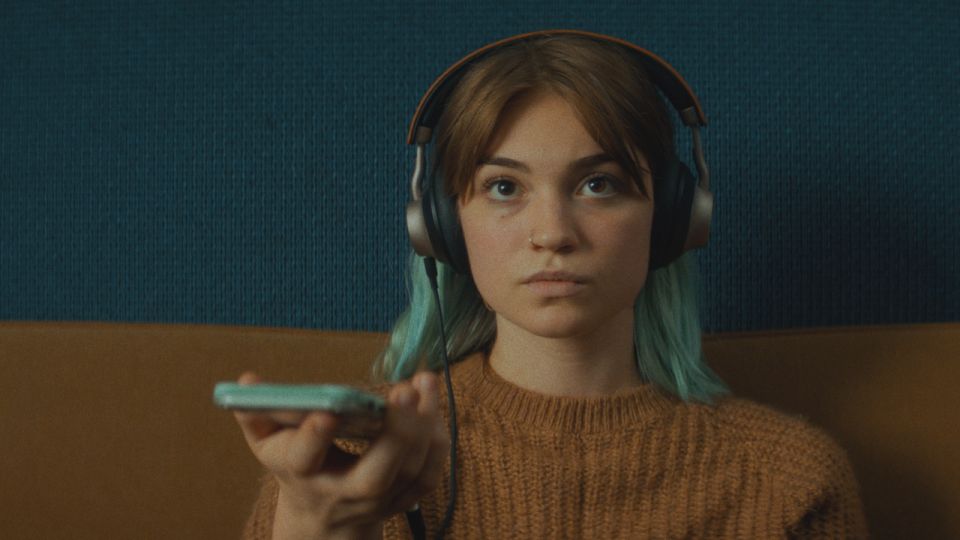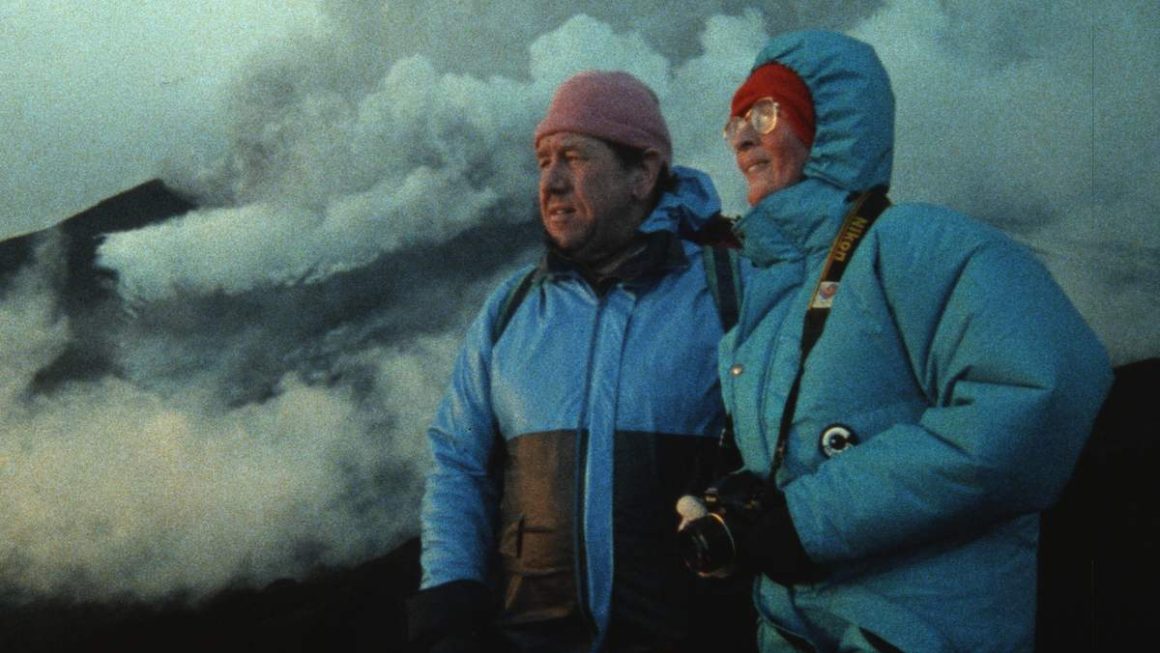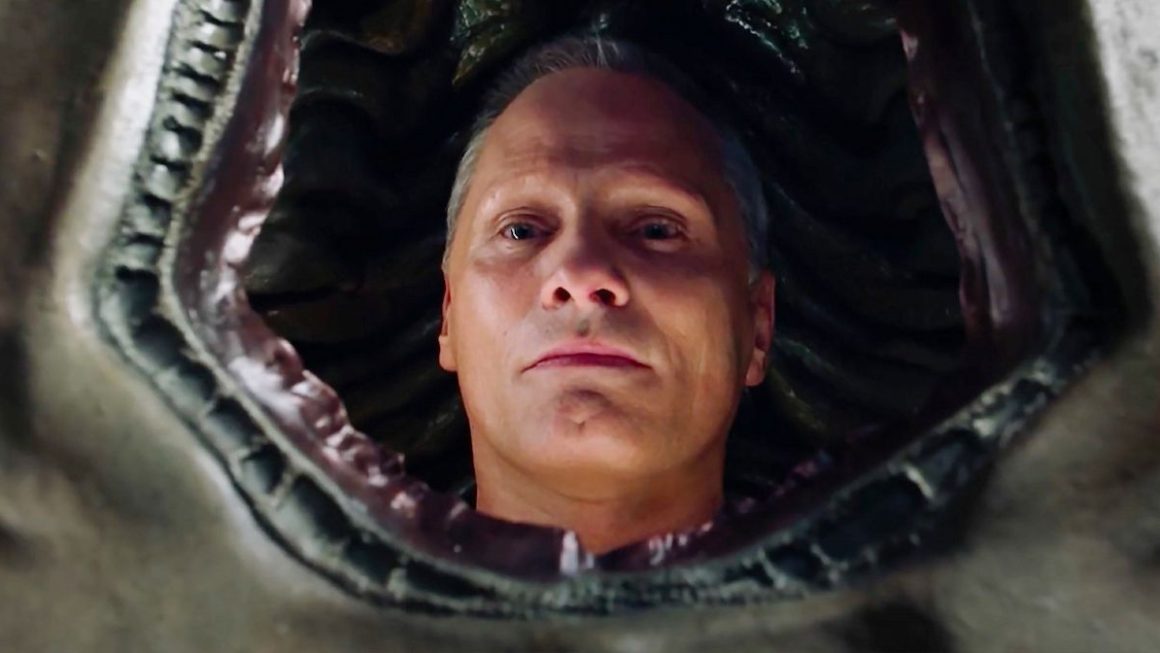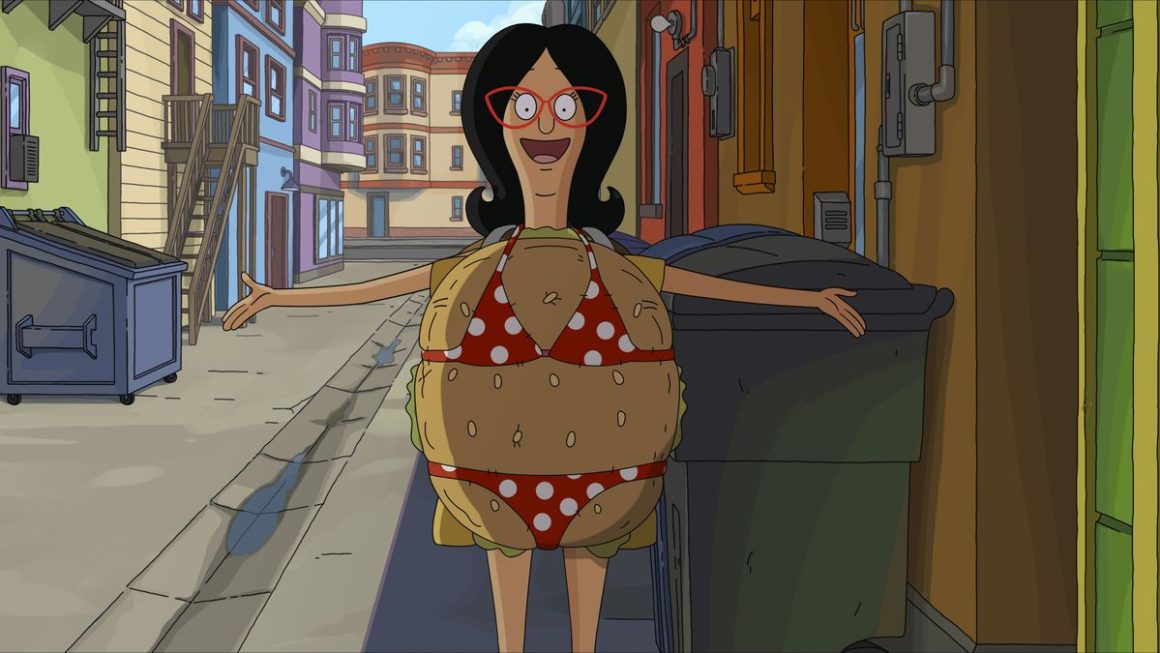What’s in a name? Three consonants and two vowels in this particular instance, but that is hardly the answer Shakespeare’s Juliet famously sought. Poser. Never has a name tickled at my mind so feverishly, bothered some buried portion of my psyche, to the extent that I should write an entire article about it. Is it simple? Yes. Does it exude an overwhelming sense of mysticism? Not really, but that is precisely why it stuck. The title here does not merely refer to the characters and story within, but to the film itself.
Poser is… well, a poser—in the best of ways.
Directed by Noah Dixon and Ori Segev and shot from a script Dixon wrote, Poser premiered at Tribeca on June 10th. It was produced by Loose Films out of Columbus, Ohio, where the film was set—and shot. Multiple sites list Poser as a feature-length drama, one centered on Columbus’ music scene and a young woman eager to join its ranks—all of which is true.
Neither the film’s title nor its categorical presentation directly lies to the viewer. Deceit presents itself only upon recognition of intentional omission. Poser does not stop at music-related drama but continues well past the expected trajectory of a film with this designation, emerging post slow-burn metamorphosis a thriller. Not since Uncut Gems has a film so cunningly lured me into a state of unrelenting panic. Thank you, naivety and unfaltering trust!
Do Not Be Fooled
This phrase serves as both warning and accolade here. Poser captures one of the most disturbing but inevitable facets of society—inclusion. Sylvie Mix’s Lennon desires one thing—a sense of belonging within the music community she so vehemently admires. Starting a podcast, Lennon manages to wriggle her way into the midst of it all—that bass-thumping, poetry-blasting fray. While this should induce in her a sense of fitting-in so flagrantly absent at the film’s start, it instead catapults her into an inescapable dilemma.
Starving to belong transforms into a different kind of hunger, a need to excel, to be liked and viewed as talented as the groups and individuals she interviews—a phenomenon that, in essence, flips the very concept of imposter syndrome on its head, subverting the fear of ineptitude to engender in its stead an inflated sense of ability.
Lennon makes a conscious decision when playing her version of “Wyd” to her new friends, failing to attribute the song to the band Wyd upon realizing the impression she has made. This is obviously the point of no return, but not where the film concretes itself as a bonified thriller. It instead serves as the catalyst, one part of a much larger puzzle, instigating that definitive shift in tone. While clearly disheartening, the most tragic component of this change is not the position it forces Lennon into, but the accessibility of its rationale. Who among us has not pretended to be someone or something we are not to impress our peers?
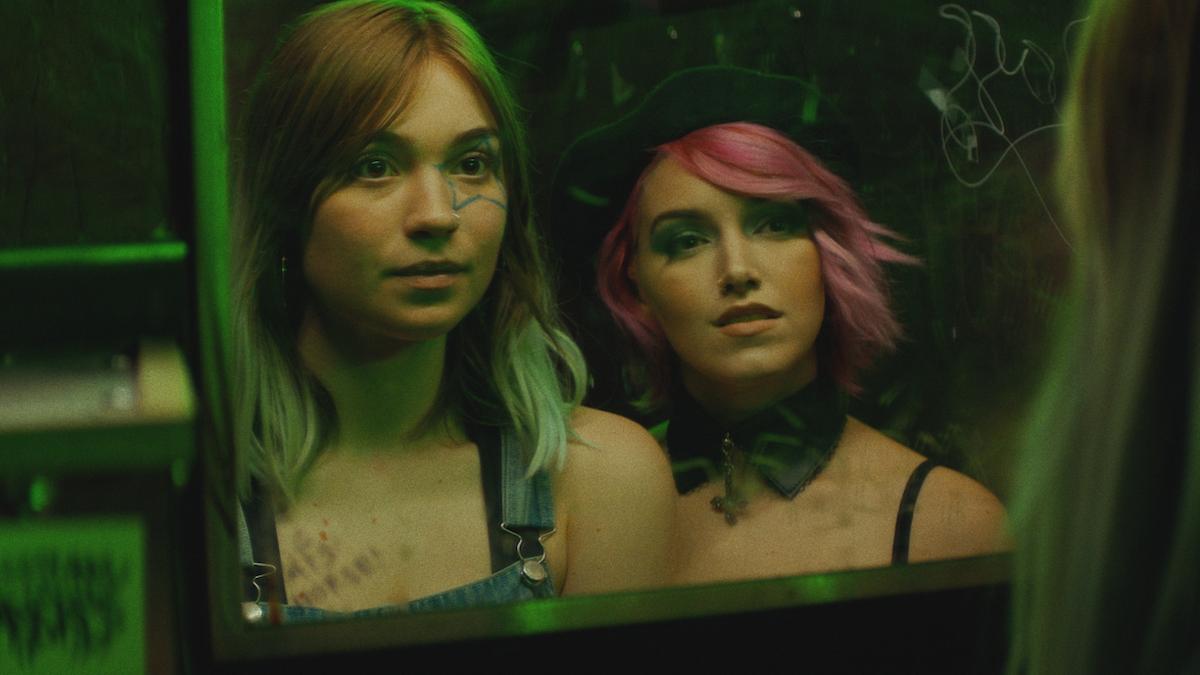
Is This The Real Life?
Also contributing to the film’s remarkable verisimilitude, many artists and bands play fictionalized versions of themselves, like the group Wyd mentioned above, providing both a fun and pertinent soundtrack as well as a means to further question the reality Lennon is living in, such that the connection between the world of the film and the world we ourselves reside in is one of disconcertingly close proximity—virtually speaking, of course.
Bobbi Kitten and Z Wolf of Damn the Witch Siren are the two most prominent figures derived from this connection to reality, both performing their music in venues Lennon visits and directly interacting with—and ultimately befriending—Lennon herself. These events help suspend reality for the film’s duration. Barring the absence of traditional formatting and structure—interviews, voiceovers, reenactments, etc.—Poser at times feels as equally a work of nonfiction—a documentary adjacent if you will—once again adding to the overarching realness that provokes a sense of dread and foreboding.
Have I mentioned already how unsettling this film is?
The Chops
Finally, Sylvie Mix’s performance as Lennon—the primary factor establishing, undeniably, Poser’s status as a thriller. In fact, one of my first thoughts immediately after watching the film—the conclusion of which I have intentionally excluded so you may share in my terror/delight—was whether Poser’s Lennon could be related to Joker’s Arthur Fleck—figuratively speaking.
Where Lennon’s poor decision-making demands comparison to Adam Sandler’s Harold Ratner in Uncut Gems, the sheer nature of her character—a social outcast with odd tendencies and probable mental issues—reflects aspects of Joaquin Phoenix’s titular Joker.
An awkward, ordinary girl with no proper support system or friends does not inherently signify the makings of a sociopath. As Poser unravels—and oh does it unravel—it is quickly reiterated how easy it is to underestimate an individual we know little to nothing about.
There is just something off about Lennon, something that presents itself early in the film and refuses to ever vacate. Sylvie Mix far exceeded what expectations I had, given my complete lack of familiarity with her name. For someone without an extensive filmography, her timing and facial expressions feel surprisingly veteran—elements that lend themselves to the realism and panic her character induces.
Boo Who?
Poser is not a scary movie in that it deals with ghosts or jump scares. It is a terrifying movie in that there is nothing—literally nothing—to suggest that the events it depicts are implausible.
Everything that happens in the film could happen in real life. Even the shift from seemingly innocent music drama to psychological thriller mimics how quickly our circumstances can change and how the actions of an unpredictable stranger can prove devastating. Poser may be misleading in its presentation, but its lessons in possibility are anything but lies. And what’s more disturbing than truth?
Poser
Directors: Noah Dixon, Ori Segev
Writer: Noah Dixon
Starring: Sylvie Mix, Bobbi Kitten
Images courtesy of Tribeca Film Festival

